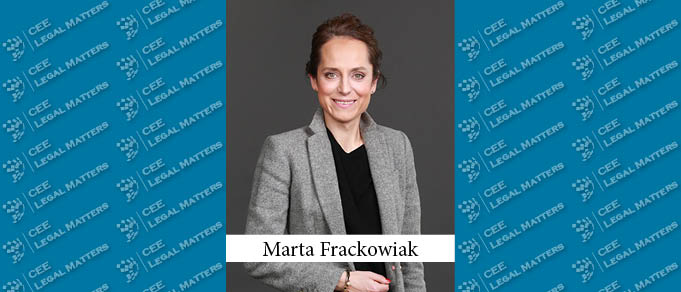DLA Piper Partner Marta Frackowiak discusses the current slowdown in the Polish market, driven by geopolitical uncertainty, economic challenges, and hesitance among investors, while also highlighting key trends in M&A, employment, and regional expansion efforts by Polish businesses.
"There’s been a noticeable slowdown in the Polish market due to several well-known factors," Frackowiak begins."Geopolitics, especially the war in Ukraine, has caused hesitance among investors, as many are in a wait-and-see stage. The upcoming U.S. elections also add to the uncertainty. On top of that, the economic situation, particularly inflation and rising energy prices, is influencing the market," she explains. Moreover, Frackowiak reports that the real estate sector, which was booming, isn’t as active as it once was, though there are signs of a pickup.
Focusing specifically on the M&A market's health amidst these challenges, Frackowiak shares that there have been noticeable slowdowns. "Even before commencing with the transaction, there’s more deliberation – should we go to market or not? And once projects do start, we’re seeing them put on hold more often than before. Negotiations are taking longer, and finding that 'sweet spot' for both sellers and buyers has become more difficult," she elaborates. "It’s not a full bottoming out of the market, but there’s definitely a slowdown. We’re seeing some signs of improvement, but we’re still waiting for the market to fully recover."
Given all of these, it would be expected that insolvencies would ramp up, however, Frackowiak reports that this is not the case. "There are industries heavily impacted by rising energy costs, but we haven’t seen widespread insolvencies. Instead, we’re seeing more reorganizations – companies preparing for the next stage by divesting certain parts of their business or considering IPOs," she says. "It’s more about cost-saving measures rather than full-on restructuring at this point."
Frackowiak also tackles how these trends impact the employment sector. "Some investors are pulling out of Poland, leading to discussions about closing facilities and redundancies. We’ve been involved in negotiating packages for affected employees, and it’s something we’re seeing more often as the market slows. However, we’re also seeing clients coming in to invest in Poland, which is a positive sign," she says.
Finally, Frackowiak reports a notable trend in regional transactions involving Polish entities. "We’ve seen an increase in regional transactions, with Polish entities expanding into other markets in the region – this is a great sign of the maturity of Polish businesses," she says. "Over the last two years, we’ve seen Polish clients entering Romania, Hungary, and other nearby countries, which strengthens their regional presence – Romania, for one, has been a top destination for our clients." Additionally, Frackowiak says that Poland continues to benefit from nearshoring, especially for German clients who are looking to take advantage of our lower costs while remaining close to home. "The war is seen as a big risk, but there’s hope that once it ends, there will be significant opportunities for rebuilding in the region, particularly in Ukraine," Frackowiak concludes.






















